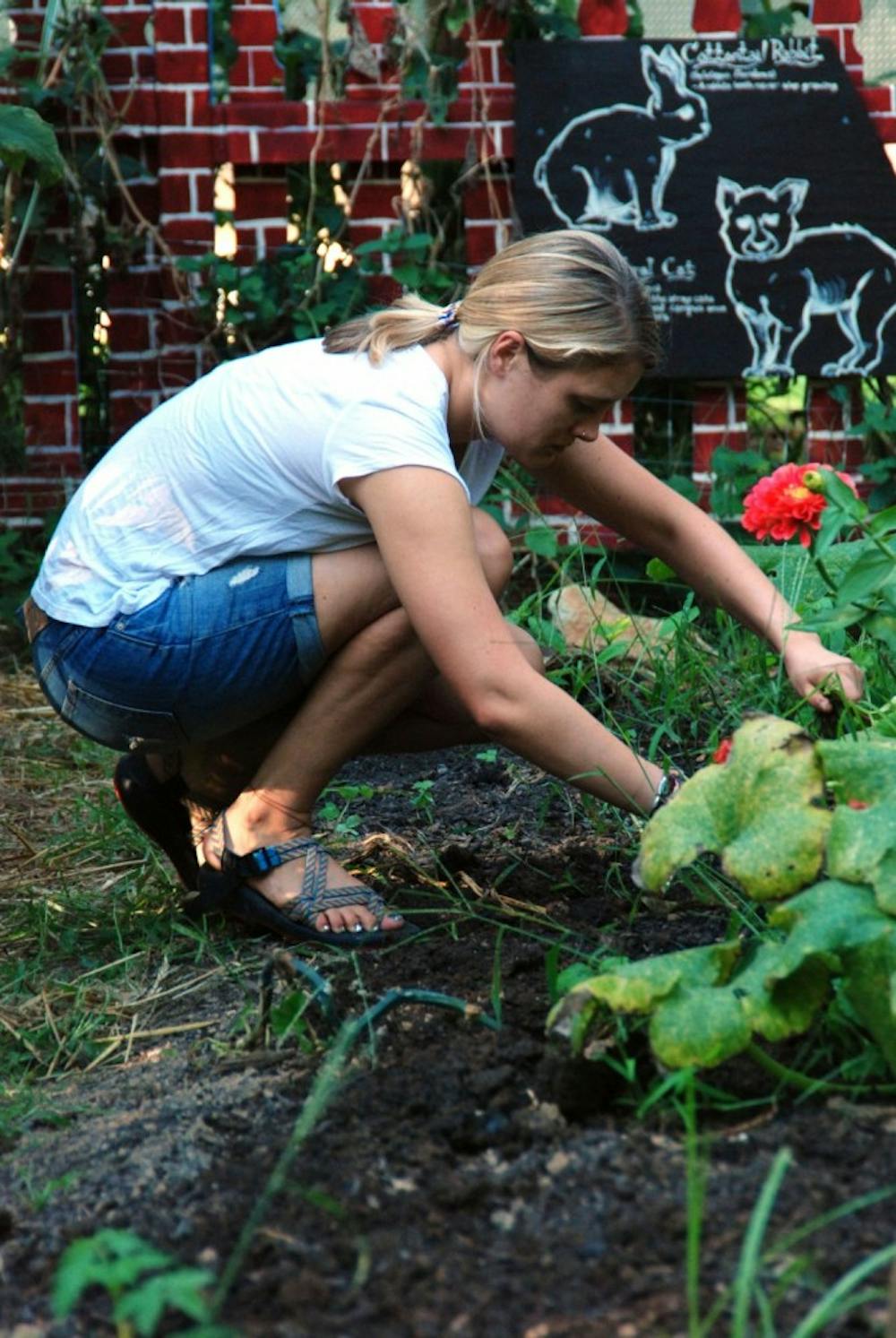Elon University students are harvesting success.
When Bree Detwiler’s senior thesis initiated the development of the Elon Community Garden more than two years ago, few expected much from the proposed idea. Now, the garden is not only a fully productive vegetable terrace behind Powell House, but has also received recognition from the National Wildlife Federation as a certified wildlife habitat.
“The garden has literally grown so much and it’s become more than just a silly little senior project,” said senior Sudie Brown, student manager of the Elon Community Garden. “Now it’s an official thing where students are growing their own food.”
The garden came to fruition with the help of students in the recently launched Garden Studio classes, led by Michael Strickland, lecturer in English and environmental studies, as well as volunteer efforts from students in other ENS classes with a focus in agriculture.
“I couldn’t be more pleased with the progress,” Strickland said. “I was just talking with a staff member who said she never imagined the garden would end up looking like this. We’ve come light-years, not only aesthetically, but in terms of productivity, and it’s all because of the dedication of the students.”
In fact, it was a group of students who contacted NWF more than a year ago about getting the garden certified. The four main factors in designating a site as a wildlife habitat are whether the site provides water, food, shelter and a place to raise young for all living creatures, so the students worked with NWF to get the garden up to standard.
“We’re operating under organic techniques so (the garden) is a haven for birds, insects and other animals,” Strickland said. “We provide places that aren’t fenced off, and we’ve had families of blue birds hatching and also turtles in our pond. We even have a separate section of plants specifically for rabbits and
woodchucks so they won’t come into the garden and eat the main plants.”
To show these living creatures were being supported, the students had to send documentation of the garden’s varied wildlife. The NWF got back to them late last spring, and after asking Strickland a few questions, the garden received its certification.
Strickland said the certification means a lot for the environmental studies department, especially because it satisfies one of the basic concepts in environmental studies: ecology.
“Ecology is the relationship within ecosystems as different groups of life function together in a harmonious fashion,” he said. “By doing this, we’re establishing an image of ourselves as a department that wants to provide for wildlife, and we’re producing food on top of that.”
These environmentally friendly qualities also contribute to sustainability, and Elaine Durr, Elon’s director of sustainability, said she thinks the garden is a great example of engaged learning and sustainability on campus.
“Receiving recognition from the NWF as a certified wildlife habitat helps to elevate the sustainability program and the dedicated work of many students, faculty and staff,” Durr said.
And for the students, like Brown, who worked on the project, the garden will forever serve as a reminder of their determination and success in literally building something from the ground up.
“We’ve made a unique place on campus that’s not just another manicured Elon lawn,” Brown said. “The garden is our own creation.”


